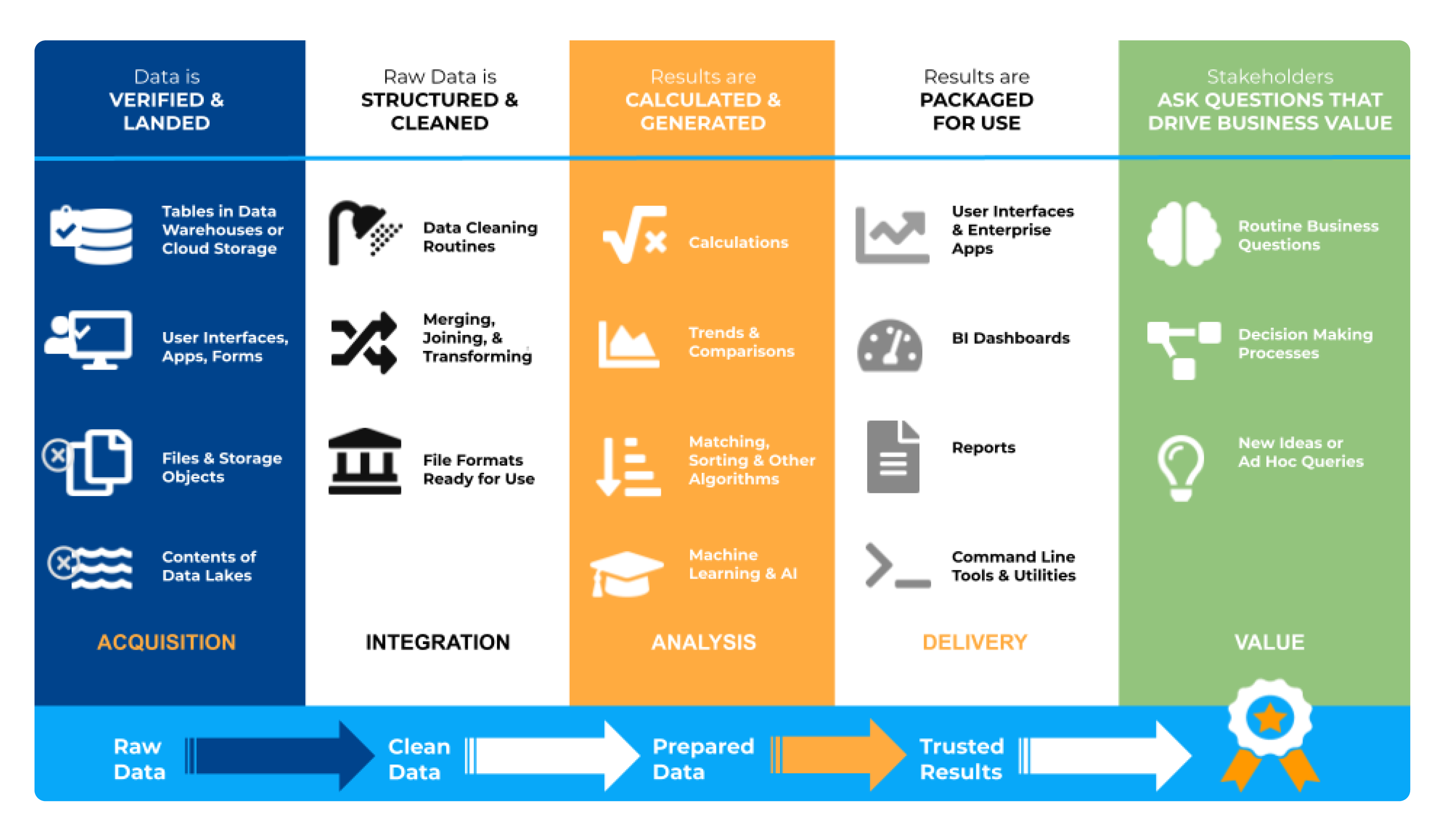Are your Data Management Practices Sustainable?
Forward thinking companies have been building strategies based on the “triple bottom line” of people, planet, and profit since the 1990’s. Today, these efforts are accelerating as organizations recommit to the more socially responsible operational requirements of Environmental, Social, and Governance (ESG) initiatives.

While it’s common to encounter sustainability and ESG initiatives in resource management, supply chain management, environmental health and safety, and management practices that increase transparency, it’s rare to hear organizations talk about sustainability in their IT and data management departments.
When companies talk about “data management for sustainability” they often mean something very specific: improving data management practices to improve the quality and availability of data related to sustainability outcomes at the firm level. They don’t mean managing all data more efficiently and sustainably. So even the most socially responsible leaders may be missing an opportunity to advance the organization’s commitment to sustainability.
Data management that fuels highly reliable sustainability and ESG data might only make up a tiny fraction of the data that a firm needs to manage. As a result, sustainability in data management means that work practices employed by data teams are sustainable. Leaders can require that information technology and data management departments, like logistics or production functions, demonstrate how sustainability principles inform their strategic decisions and work practices.
What does it mean for work practices to be “sustainable”? They should:
- Make efficient use of energy and power consumption
- Make efficient use of materials and resources
- Prioritize reuse and repair
- Share fixed assets to minimize underutilization
- Reduce complexity
- Be designed for maintainability
- Ensure transparency and enable reproducibility of work
- Conserve human energy
In data management ecosystems, this guidance can manifest in a variety of ways. First, you can prioritize technical decisions that avoid or reduce technical debt. You can consciously reduce complexity and increase transparency so that people are better able to use your data and systems to achieve your company’s goals. Finally, you can pay attention to things that are usually just ignored as externalities, like the environmental cost of storing data you’ll never use again.
Across companies and industries, is it possible for us to make data management practices more sustainable? The answer is yes, and there’s a precedent from the evolution of software development practices to prove it. Only twenty years ago, the prospect of large scale software reuse was just a dream. How could you possibly trust another organization to understand your problems? How could you possibly expect to reuse code that had not been tested according to your company’s standards?
As it turns out, both barriers were pretty easy to overcome. In fact, companies found that they could build their systems more quickly and efficiently when they used high quality, tested components that were already available. The cost of finding and approving the components quickly became low compared to the cost of writing new code from scratch.
Once infrastructure was in place for version control and code sharing, it was easy to find reusable code produced by other people and companies. You could see it, and even try it, before deciding to use it. When potential consumers could build confidence in the components up front, they were enticed to attempt reuse. Not too long after, the productivity benefits became apparent to many.
Once reuse became more widely accepted as a work practice, companies sought ways to leverage collective knowledge and tools, and contribute back to the innovation ecosystem. The quality and amount of building blocks continued to grow, and software reuse is now thriving. Within a span of five years, the perception of software reuse changed dramatically, from an unachievable and impractical goal to a foregone conclusion.
Pursuing sustainability unlocks innovation, often in places you wouldn’t expect. How can your organization make data management practices more sustainable?
Ultranauts helps companies establish and continually improve data quality through efficient, effective data governance frameworks and other aspects of data quality management systems (DQMS), especially high impact data value audits. If you want to make your organization’s data management practices more sustainable, or if you need to design quality into your ESG program, Ultranauts can quickly help you identify opportunities for improvement that will drive value, reduce costs, and increase impact.
Additional Reading:
McDonough, W., & Braungart, M. (2010). Cradle to cradle: Remaking the way we make things. North Point Press.

